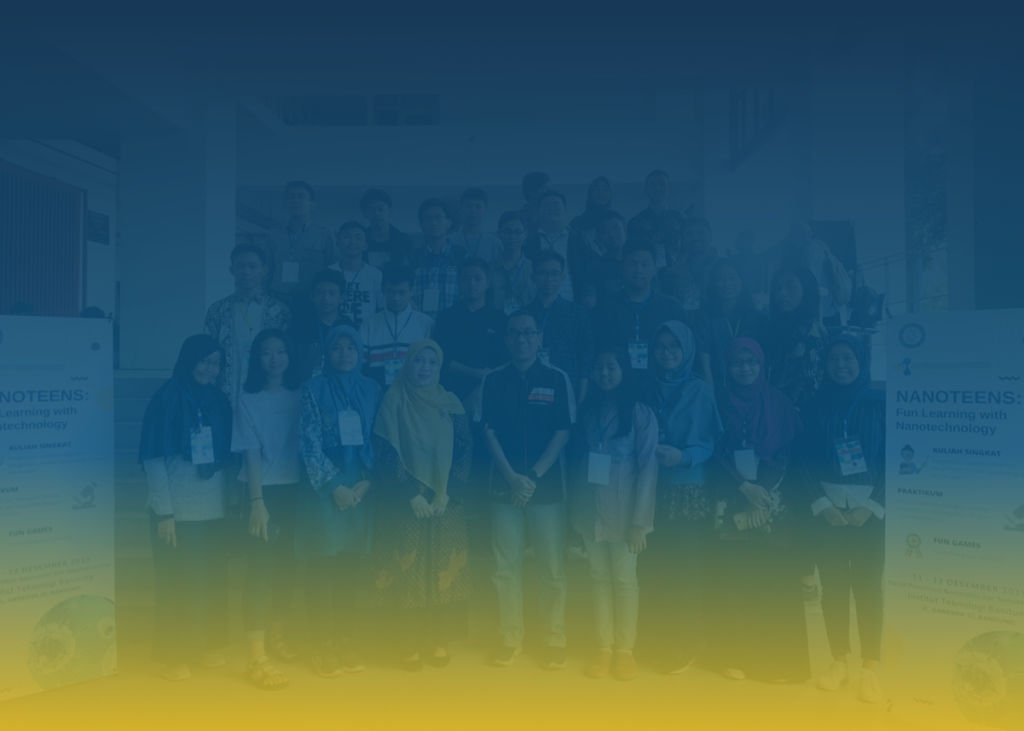The scope of fields that fall within the reach of nanotechnology is very broad, covering all fields of natural science, engineering and even humanity (socio-nanotechnology). The focus of the study and development of PPNN ITB nano technology are:
Nanomaterials
The ability to create an innovative nanoscale functional material is the basis for the development of nanotechnology. Research in this field focuses on designing nanoscale material synthesis methodologies for various applications (nanoparticles, nanoporous, nanocoatings, etc.). Innovations have been successful in the field of nanomaterials such as in the development of bone replacement materials with zirconia and alumina ceramics, nanoporous for water purification, nano catalysts, anti-corrosion materials and so on.
Nanomedicine
Nano science and technology is predicted to revolutionize the development of medical technology and treatment. Nanoscale materials engineering provides new opportunities for the development of a wide range of medicinal products, vaccines, and methods of therapy and drug delivery within the body. Two forms of nanostructures that have been and will continue to be developed include drug nanocrystal and drug nanocarriers. This research field is targeted to be able to answer national health problems with the unique use of nanoscale materials that utilize the exploration of Indonesia's natural potential as the basis for its development.
Nanodevices
Nanoscale research in this field focuses on modifying the unique properties of materials in the design and manufacture of electronic, magnetic, mechanical, optical, and other based devices. One example of research conducted is the manufacture of semiconductor-based nanosensors based on metal oxide nanostructures to detect levels of harmful gases such as LPG, CO, SOx and VOC. Observations and research were carried out using wet method crystal growth such as chemical bath deposition, hydrothermal and spray pyrolisys. This research field is expected to be able to produce various forms of device technological innovation that can be used for various purposes.
Nanoenergy
Nanotechnology can provide a solution to the problem of energy needs through innovation in the development of cleaner and renewable energy sources for the future. Utilization of nano-scale materials can increase the efficiency of energy harvesters in absorbing and converting renewable energy sources so that they are more ready to use and can be used evenly. Nano research in this field also focuses on the design and manufacture of nanocatalysts and manufacture of membranes or sensitizers for solar cells and biomass reactors.
Nanobiology
One of the central roles of nanotechnology is in the field of biotechnology. Nano-based research in this field can focus on controlling biological processes and controlling physiology through molecular genetic engineering, for example, such as self-assembly of proteins at the DNA-RNA level. In addition, the direct application of nanotechnology can also be applied to postharvest engineering to improve the quality of agricultural production. This field can generate new discoveries in the field of nanoscience and nanotechnology that are useful for improving environmental quality and bioproduct quality, including in the biomedical field such as the development of plant and animal cell and tissue engineering.

